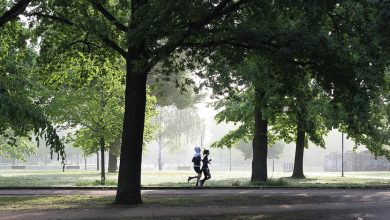
Dr. Christiaan Barnard, a South African cardiac surgeon, was the first person in the world to perform a successful human-to-human heart transplant operation. His profession often brought him face-to-face with some of the most serious forms of human suffering which caused him great anguish and distress. He felt deeply for those who suffered, especially little children, and worked relentlessly towards reducing their pain. His contribution in the field of medicine and surgery has alleviated the pain of many people across the world. Throughout his life he used his fame and resources to aid the poor and oppressed and towards the end of his life, he established the “Christiaan Barnard Foundation” which is dedicated towards upliftment of underprivileged children.
In Celebration of Being Alive | Summary and Analysis
“In Celebration of Being Alive” is an extract from one of Dr. Christiaan Barnard’s speeches wherein he talks about his views and opinions regarding human suffering and narrates the incident that changed his entire perspective about life and its hardships.
As he approached the end of his career in the field of cardiac surgery, he began to think more and more about the nature of human suffering which often led him to contemplate as to what was the main reason behind it. He says that suffering is quite widespread and pervades life across the world. He supports his statement with facts and gives us statistics, according to which, out of 125 children born in that year, 12 million are not likely to reach the mere age of one and 6 million would die before they turn five. More so, of the remaining others, most shall be afflicted by some or the other physical or mental disabilities. The data quoted substantiates Barnard’s assertion of suffering being universal. This realization of the extensive nature of human anguish fills his heart with great despair and gloom.
He reckons that such a bleak line of thought is perhaps rooted in an accident that he had suffered a few years ago. He along with his wife were victims of a road accident as they were crossing the street after a lovely meal together and had suffered heavy injuries. Upon being hit by a car, he crashed into his wife leading her to fall in the opposite lane and being hit by a car approaching from the opposite direction. Barnard sustained eleven broken ribs and a perforated lung while his wife had a badly fractured shoulder. Owing to their injuries, they had to spend the next few days at the hospital where the author was engulfed with a myriad of emotions- fear, pain as well as anger. He thought of his work and the patients waiting for him, and of his little baby who needed his wife’s care. These thoughts tormented him immensely and he kept wondering as to why both him and his wife were made to suffer so.
He believes that had his father been alive during those moments, he would have, in all likelihood, told him that this suffering was nothing but God’s will and his way of testing them. His father was of the opinion that suffering adds dignity to one’s character and makes them a better person. It is God’s means of elevating man and leading mankind towards the path of virtue.
Dr. Barnard, however, disagreed with his father’s belief that suffering ennobles man. As a doctor he had often come across patients thrashing in their beds, plagued with pain and lonely children crying in the wards at night. These sights greatly troubled his heart- he found nothing noble coming out of this suffering.
His heart broke when he came face to face with the suffering of little children, more so during those days when the world did not have access to sophisticated heart surgery. The absolute trust placed by children in doctors and nurses and the belief that they would ease their pain made their suffering even more heart-rending for Barnard. The innocent children have full faith in the doctors’ capability to heal them and even if the doctor failed to cure them despite them undergoing mutilating surgeries; they accept it as their fate without harboring any ill-feelings or complaints. Thus, Bernard held a very disenchanted attitude towards suffering and did not see any good coming out of it.
However, something happened in his life which completely altered his perception and made him see what he had missed in his view of suffering. The incident, which he refers to as the “Grand Prix of Cape Town’s Red Cross Children’s Hospital”, opened his eyes and brought comfort to his agonized thoughts.
Two young boys, a driver and a mechanic, had taken charge of an unattended breakfast trolley at the hospital and dragged it all over the place, with plates and silverware being scattered everywhere. The driver, who had only one arm, steered the trolley through his feet while the mechanic, being blind, pushed it from behind. Their actions elicited lots of laughter and encouragement from all the patients who found their antics very entertaining.
These young boys, who had spread so much joy and positivity all around, were themselves undergoing very trying times. Both of them had suffered a lot at the hands of destiny. The mechanic, being just seven years old, was hit by a lantern thrown by his mother at his father when they were both drunk. As a result of this mishap, he suffered severe burns on his upper body and lost both of his eyes. His face was completely marred and skin hung from the side of his neck to his body. A mass of fibrous tissue gripped his lower jaw as the wound on his neck healed, making it impossible for him to open his mouth except by raising his head.
The driver, having been treated by Dr. Barnard for a hole in his heart in the past, had developed a malignant tumour of the bone due to which his shoulder and arm had to be amputated. Even after that the chances of his recovery were grim.
Undeterred by these troubles, both the boys maintained an optimistic and positive attitude, diffusing laughter among all the other patients. They cheerfully raced on the trolley during the Grand Prix, having full confidence in each other regardless of their individual shortcomings. They were proud of the feat they had managed to accomplish and content with living the little joys brought to them by life. Instead of being perturbed by their troubles, they chose to make the best out of their life and celebrated the simple pleasures of being alive.
This event taught a life-changing lesson to Dr. Barnard. The boys made him realize that being able to live is in itself a reason for celebration- it is the purest source of joy and contentment. His thoughts regarding suffering also underwent a drastic change as he realized that it is not suffering that makes one a better person, but rather it is the experience of suffering which ennobles man. He says- “We can’t appreciate light if we haven’t known darkness. Nor can we appreciate warmth if we have never suffered cold.” Those who have never suffered, cannot understand the joys given by the everyday things in life. Celebration of life is not possible without acknowledgment and experience of its hardships. Only when one has seen the bad, can one really appreciate the good in life. In the absence of black, white has no value.
The children showed Barnard that what you lose in life is not important. What holds real significance is what one leaves behind. Rather than crying over the past, we should move further, shedding all worries of the past behind us. The real celebration of being alive is letting go of all the hardships suffered in the past and taking a step further, towards a happier tomorrow.
The prose inspires us to see life with a positive vision and embrace its adversities as a means to become a better version of ourselves. The use of simple, everyday language and the autobiographical element, adds conviction to the piece, making it an effective source of motivation. The theme of celebrating life radiates optimism and hope, encouraging the reader to experience the joy of living in its real sense.





